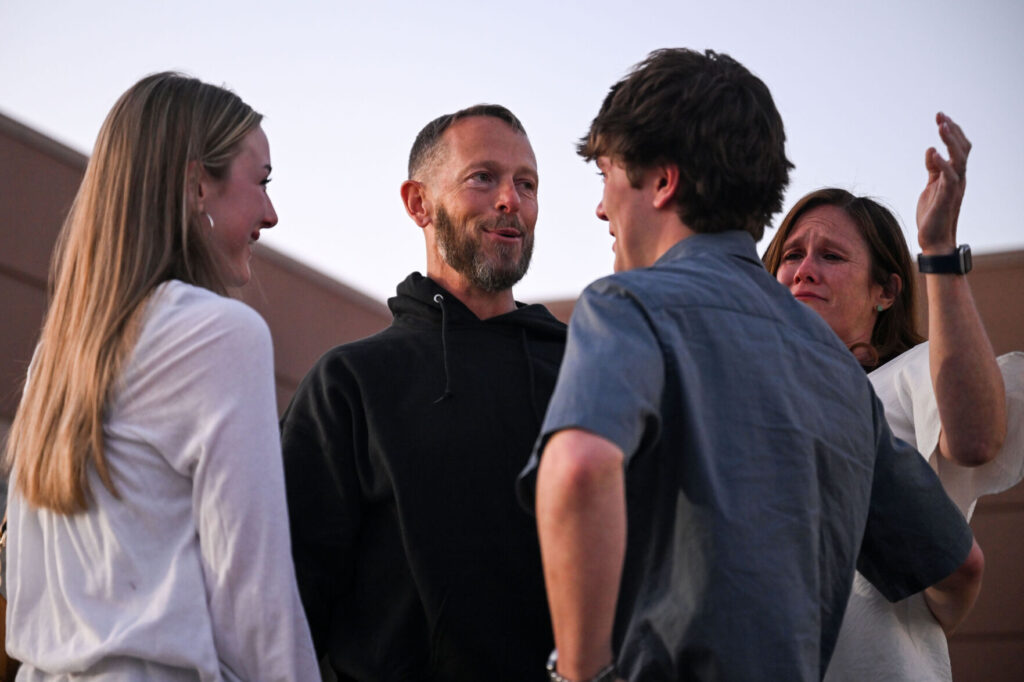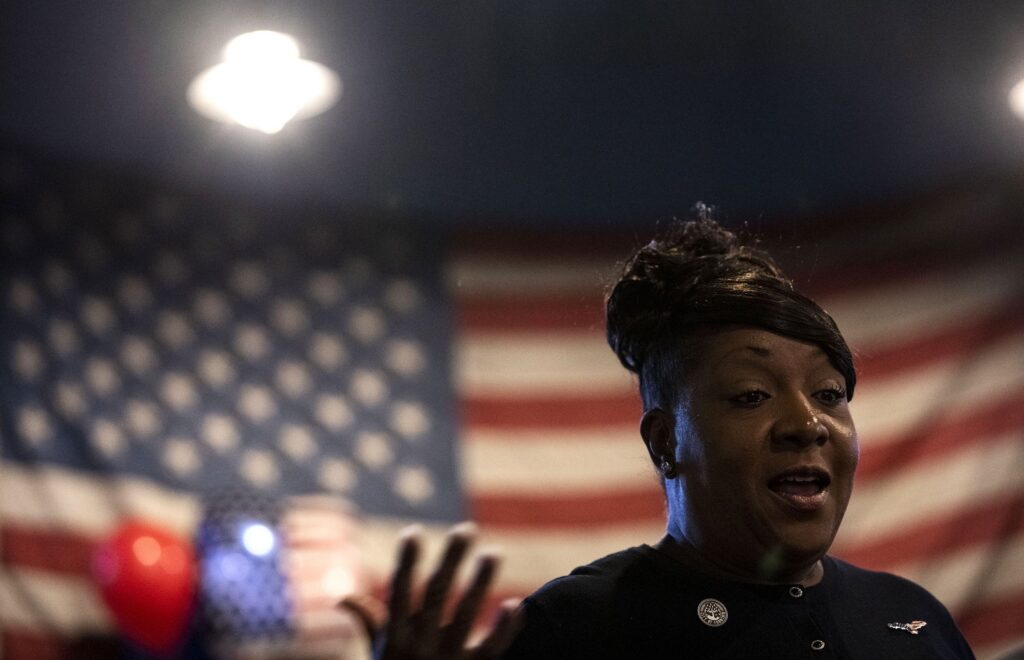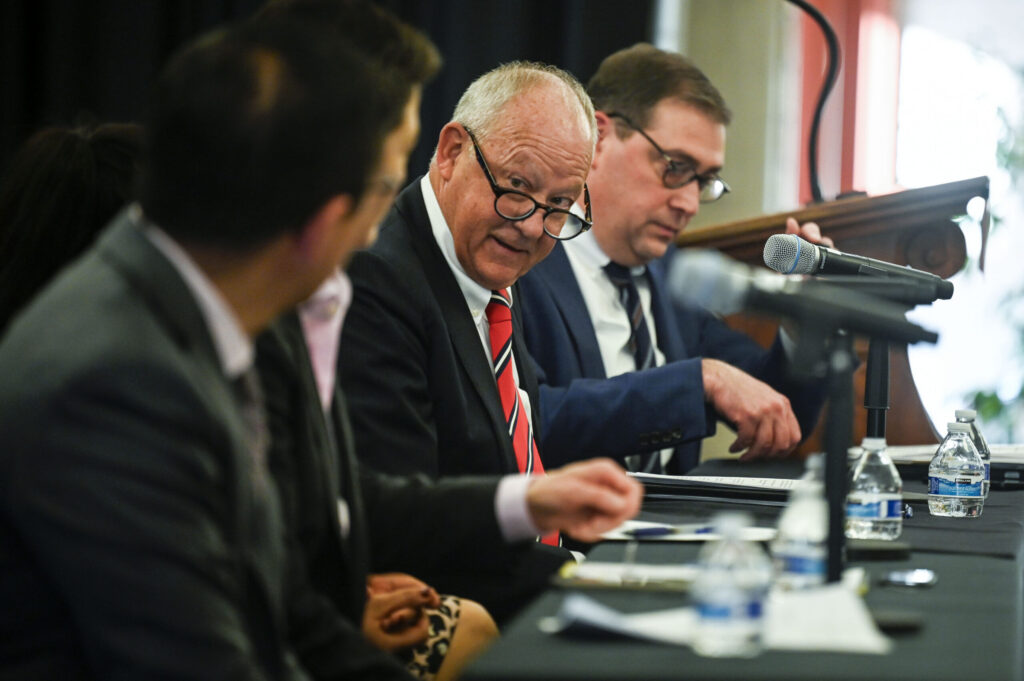Divided Colorado Supreme Court: Criminal trial livestreams not enough to satisfy public trial right
A slim majority of the Colorado Supreme Court decided on Monday that livestreaming criminal proceedings without also opening the physical courtroom to spectators may violate the constitutional guarantee of a public trial.
Addressing an issue that arose during the early COVID-19 pandemic, the justices considered whether it was acceptable for trial judges to restrict their physical courtrooms to onlookers so long as they provided a remote viewing alternative. By 4-3, the Supreme Court concluded that doing so could amount to a constitutional violation in the absence of a clear justification.
“Screens in a courtroom, no matter their number or the nature of their display, are an inadequate substitute for the physical presence of real spectators in the gallery and the powerful reminder that those spectators provide to jurors regarding the gravity of their role,” wrote Justice Maria E. Berkenkotter in the June 23 majority opinion.
Justice Melissa Hart disagreed with that conclusion. She believed the majority had redefined the right to a public trial to mean the right to a public courtroom. Hart would have deemed the provision of livestream-only access sufficient to render the proceedings “public.”
“Virtual proceedings — and particularly livestreaming — have made trials as available, and as unrestricted, as one can currently imagine. The actions of lawyers and judges and the testimony of witnesses have never faced the kind of public scrutiny they face in today’s trial proceedings,” wrote Hart for herself and Justices Brian D. Boatright and Carlos A. Samour Jr.
The national and state supreme courts have recognized that some circumstances may justify a judge’s decision to not keep their courtroom open to everyone — such as a spectator causing disruption or the closure being “trivial” in nature. Under the U.S. Supreme Court’s 1984 ruling in Waller v. Georgia, trial judges must consider specific factors when deciding whether to close a courtroom to one or more people. Unless justified, a violation of the right to a public trial triggers automatic reversal of a defendant’s convictions.
But does a judge necessarily close “the courtroom” when it is possible to see the trial remotely?
In a pair of cases stemming from pandemic-era trials, the majority declined to endorse an interpretation that would require the provision of physical courtroom seats in every situation, but they also did not endorse a view that would have deemed livestreaming enough on its own.
Adopting a phrase used at oral arguments, Berkenkotter wrote that blessing livestream-only access would turn the constitutional guarantee into “nothing more than the opportunity for the public to watch something akin to live television.”
COVID closures
Following a reversal on appeal, Michelle Re Nae Bialas was on trial for the second time in 2021, with public health protocols to prevent COVID-19 transmission still in place. Courtroom capacity was limited and another room in the courthouse had a live video feed of the trial. Beforehand, the parties agreed the families for Bialas and the victim would be in the courtroom, rather than the remote viewing room.
During the proceedings, some jurors reported hearing talk among the audience about Bialas’ previous trial. Although the commentary appeared to come from the alleged victim’s family, not Bialas’, Gilpin County District Court Judge Todd L. Vriesman ordered everyone to the overflow room for the rest of the trial. He said he was “not going to sit around” to determine who was at fault.
Bialas appealed Vriesman’s decision to close his physical courtroom to her family, and a three-judge panel for the Court of Appeals agreed Vriesman had not established a compelling reason to eject everyone in lieu of figuring out whose commentary was affecting the jury.
“The court did not simply admonish the spectators not to discuss the prior trial. Instead, it excluded the entire public, including Bialas’s family, based on the misbehavior of a few spectators,” wrote Judge Ted C. Tow III. “This action exceeded what was necessary to insulate the jury from improper statements.”
In contrast, Isaiah Ismael Rios’ jury trial was the first felony case to proceed in Boulder County following the onset of the COVID-19 pandemic. His October 2020 trial had multiple public health precautions, including distancing, masking and a livestream in an overflow room for spectators.
Rios, who was convicted of murder and other serious offenses, appealed the closure of the physical courtroom. Three months after the Court of Appeals issued its decision in Bialas’ case, a different panel likewise agreed Rios’ courtroom was partially closed to the public.
However, the panel concluded the exclusion was justified under the U.S. Supreme Court’s test because of the overriding need to protect against infections.
“The record reveals the court’s concern with preventing the spread of COVID-19 among trial participants and shows that it crafted a reasonable response,” wrote Judge Rebecca R. Freyre.
During oral arguments to the state Supreme Court, the justices pondered various scenarios testing the 18th Century right to a public trial against the realities of modern court proceedings. Could judges bar spectators from physical courtrooms in every criminal case so long as they provided a livestream? Should the Supreme Court address the possibility that someday judges might operate out of purely virtual courtrooms?
Meredith K. Rose, the attorney for Bialas, noted that Bialas, her friends and family, defense lawyers, employees of the attorney general’s office and high school students were all in the audience during the arguments.
“Each one of these spectators could have stayed home and watched this oral argument remotely,” Rose said. “But we all intuitively understand that there’s a difference between in-person attendance and online observation. And that difference is exactly what’s at stake in this appeal.”
‘Capacity constraints’ v. ‘reasonable opportunity’
In its two opinions, the Supreme Court upheld each of the Court of Appeals’ decisions. It agreed in Rios’ case that the COVID-19 pandemic was an appropriate reason to bar spectators from the physical courtroom, satisfying the U.S. Supreme Court’s permissibility test. The majority also agreed that barring Bialas’ family for something they likely did not do was unjustified, triggering the potential of a third criminal trial for her.
Berkenkotter, in laying out the majority’s understanding of the Sixth Amendment, wrote that the purpose of the public trial guarantee is for trial participants to be reminded of their obligations through the presence of spectators. That meant a “reasonable opportunity to be physically present,” she elaborated.
She clarified that the courtroom closure in Rios’ case was appropriately viewed as a “capacity constraint” because it was deemed physically impossible to accommodate spectators without risking health and safety.
“Just because, for instance, one hundred people want to personally observe a high-profile criminal case, it does not follow that some of them are excluded by the court if there is only room for sixty spectators,” Berkenkotter wrote. “It also does not mean that the courtroom is closed to the forty spectators who will not be able to sit in the gallery; it means only that the courtroom’s seating capacity is limited to sixty people. These are not courtroom closures.”
Likewise, it does not violate the Sixth Amendment if someone watching virtually happens to lose connectivity, she added.
Hart wrote that she would deem the public trial guarantee satisfied when the proceedings are open to the public either physically or virtually, and the trial participants are aware they are being observed. Under that standard, she would have upheld both Rios’ convictions and Bialas’. Hart continued that it “would be best” if the trial participants could also see the remote spectators so as to be reminded they are under scrutiny.
“The right guaranteed by both the U.S. and Colorado Constitutions,” she argued, “is a public trial right. It is not a public courtroom right.”
The cases are People v. Bialas and Rios v. People.
Colorado Politics Must-Reads:
















